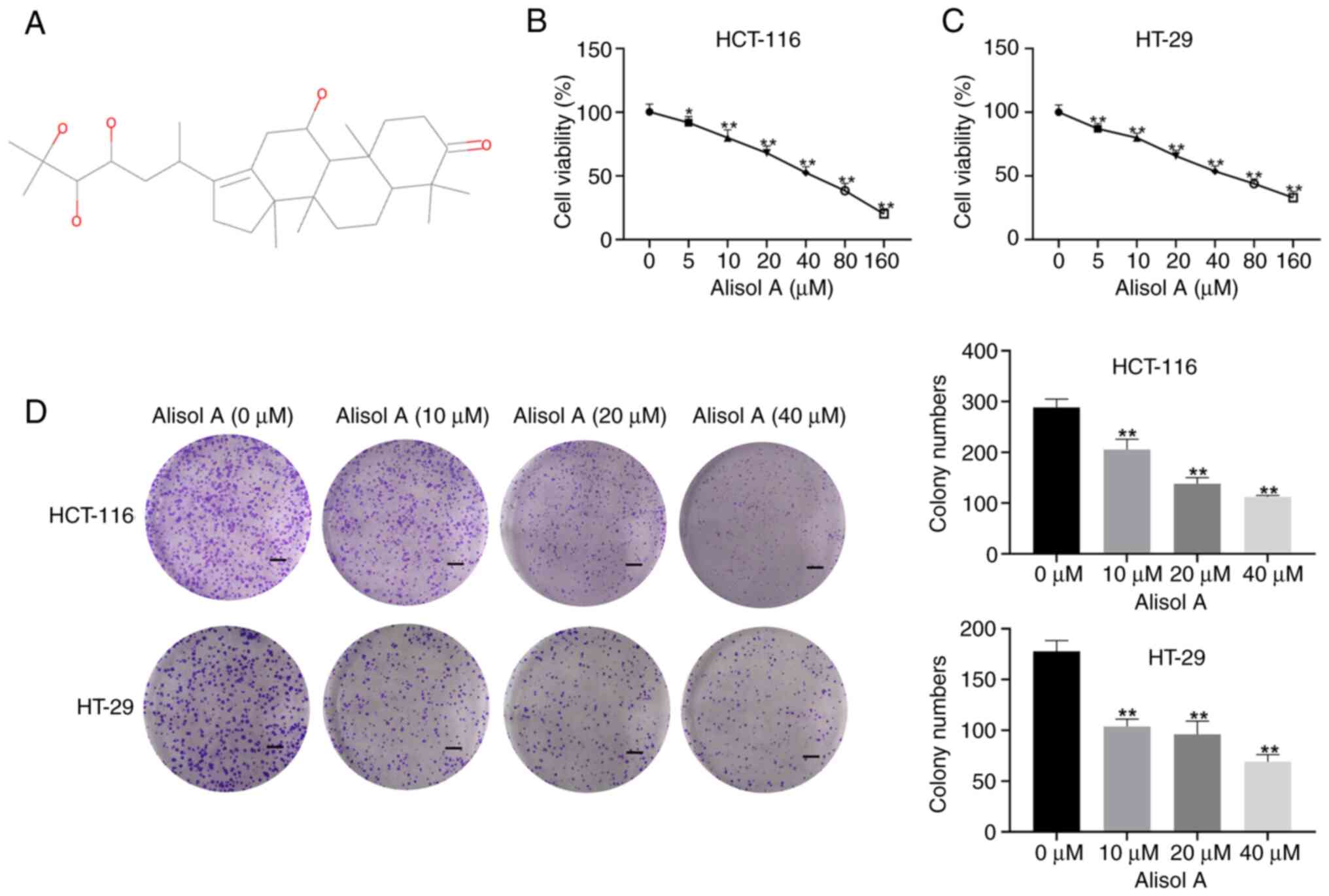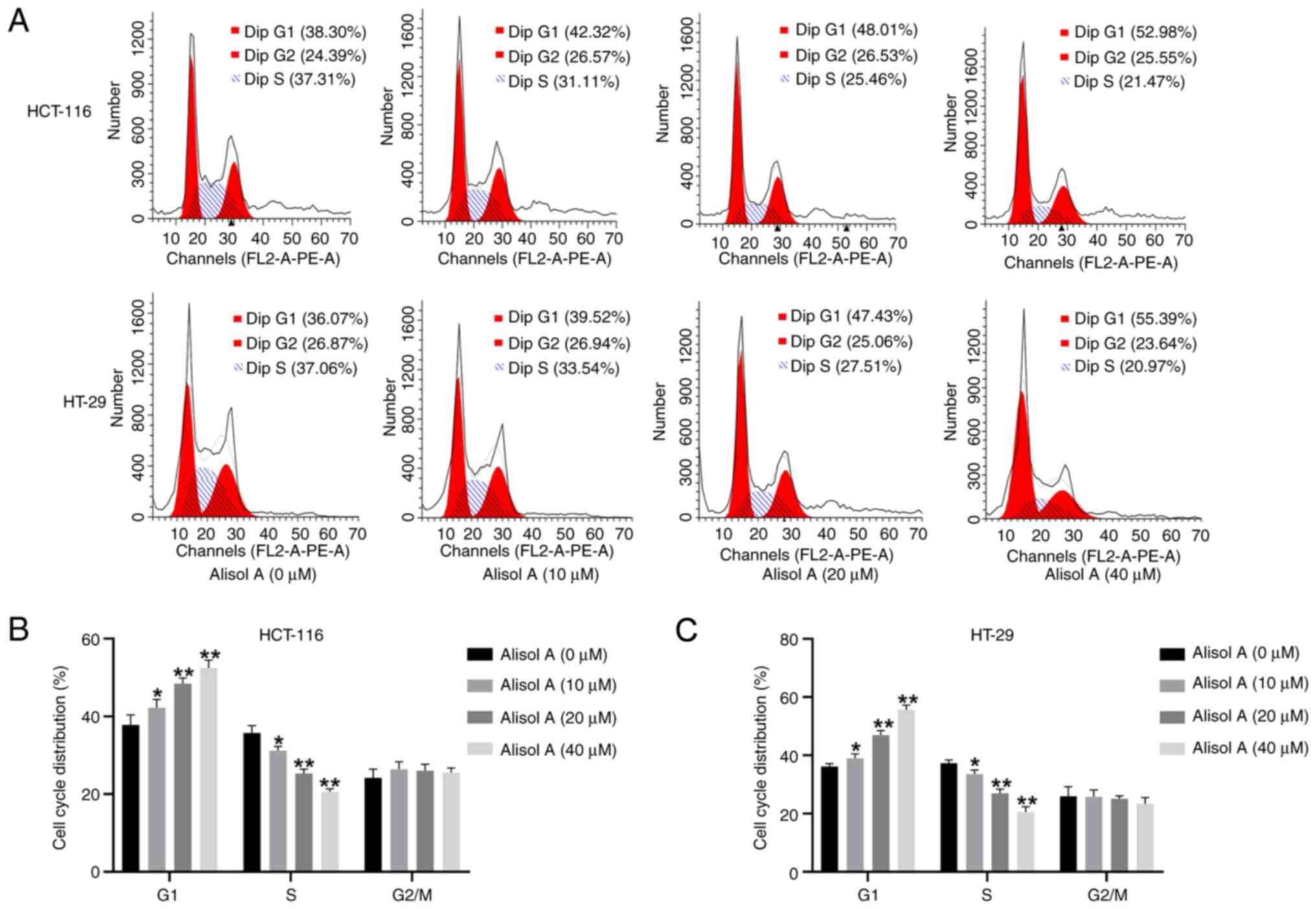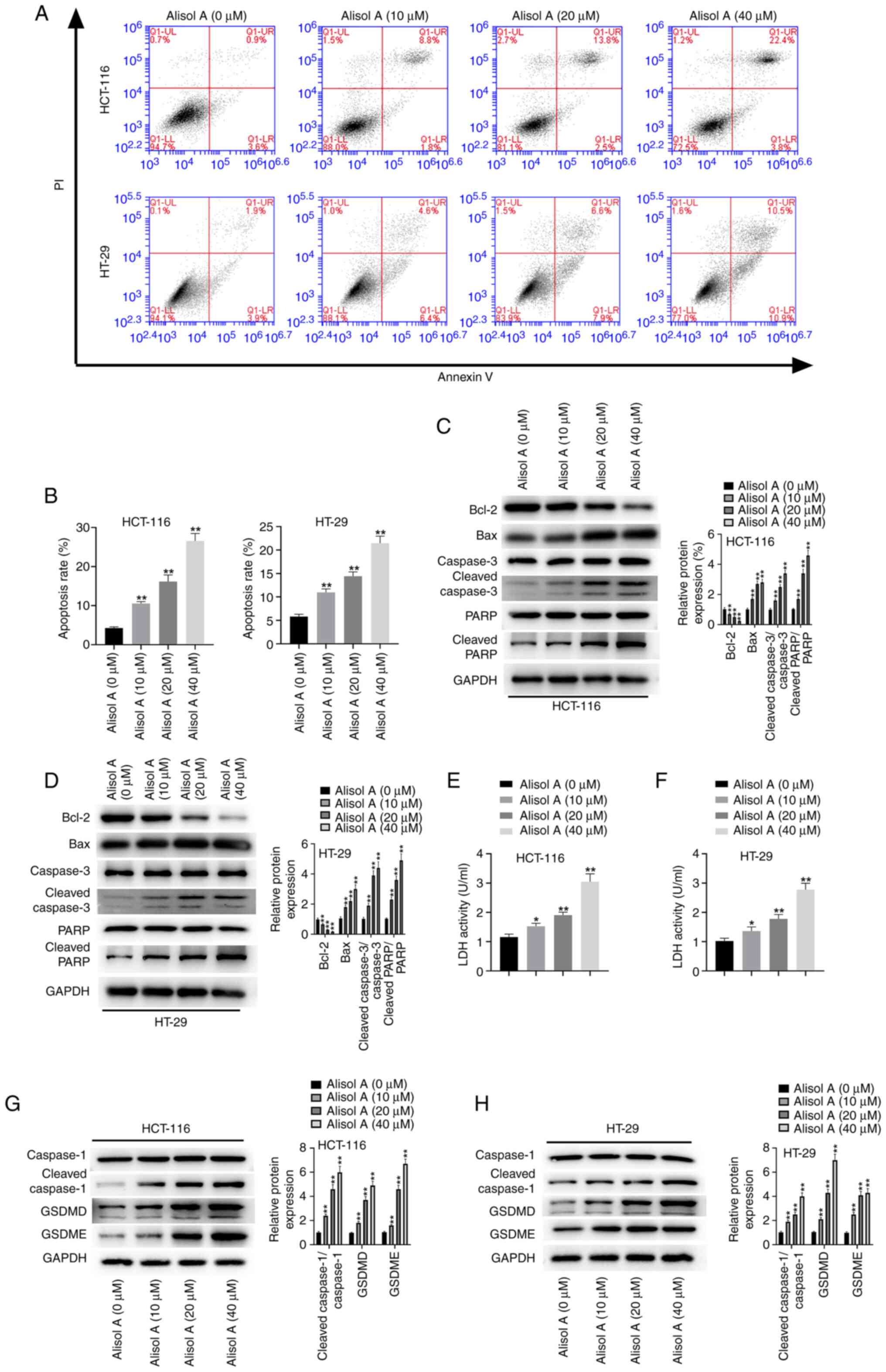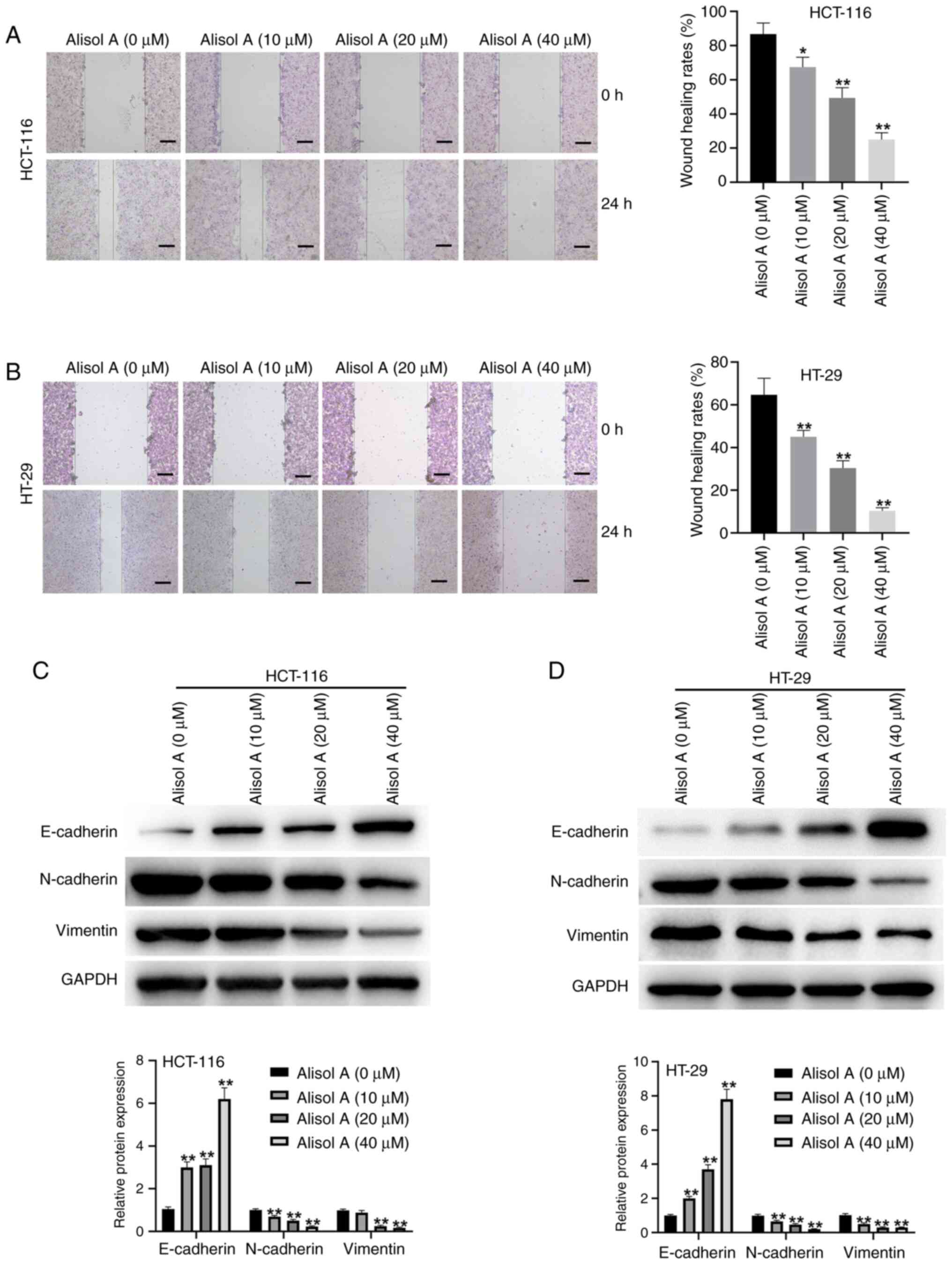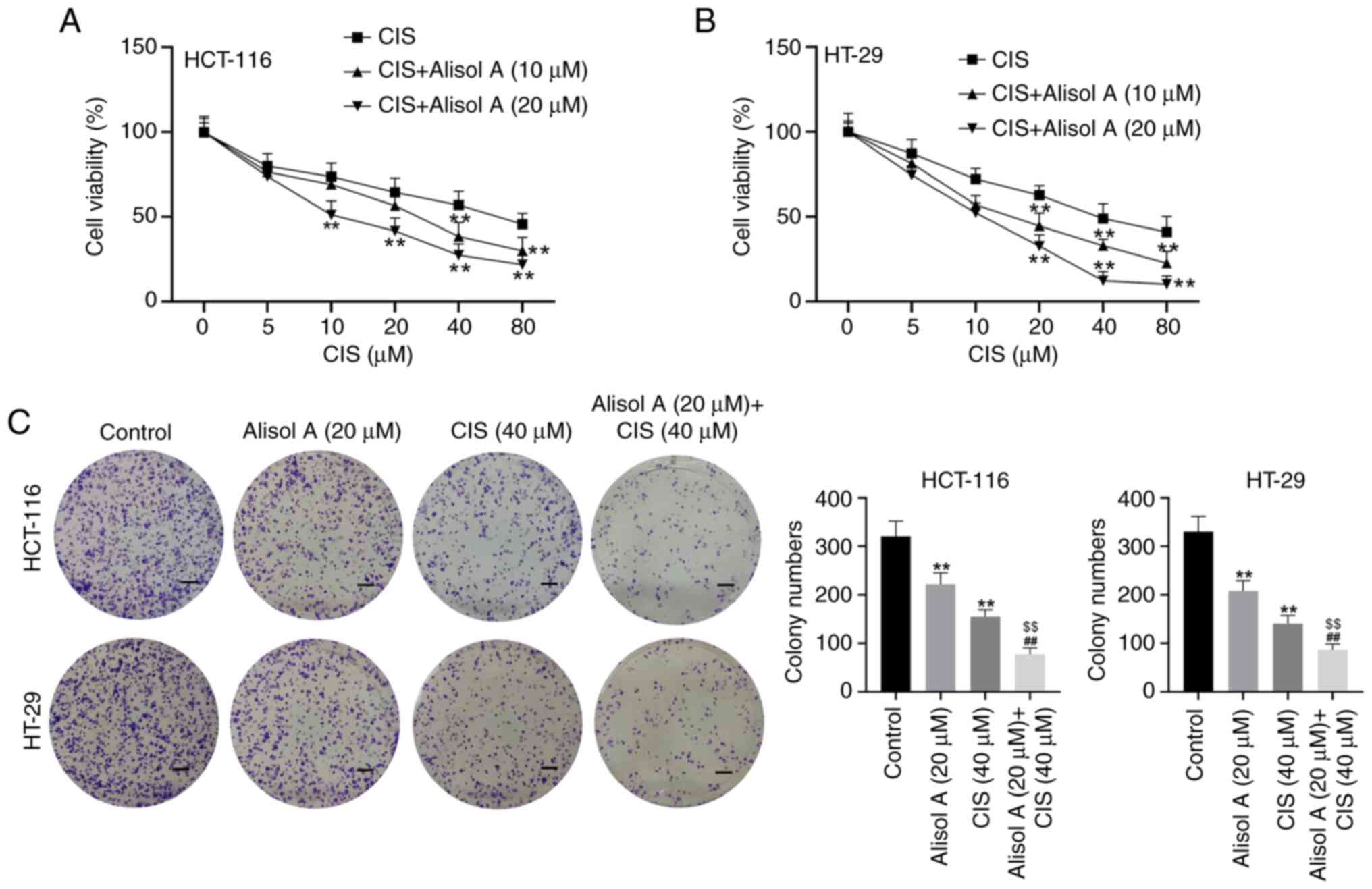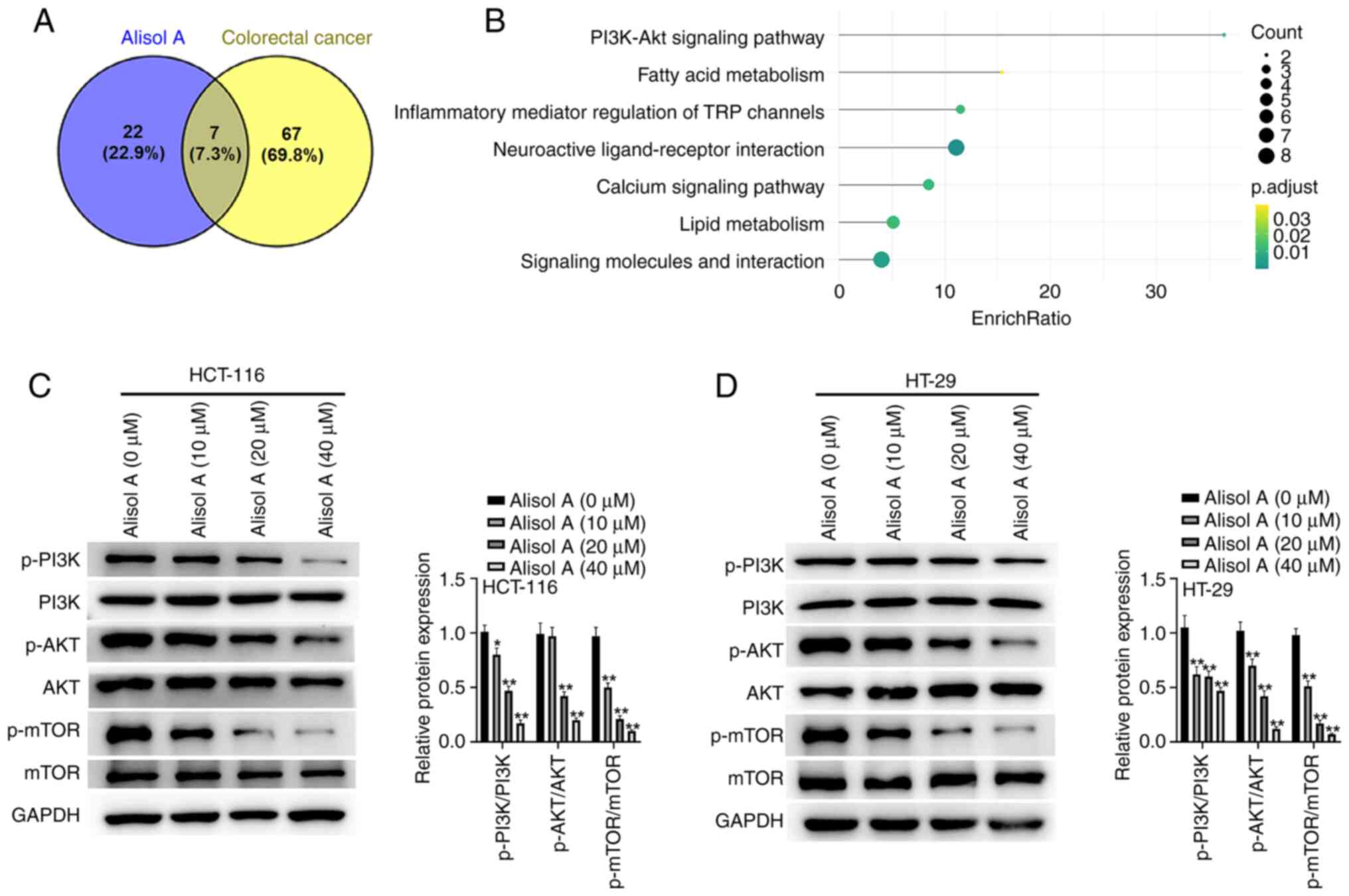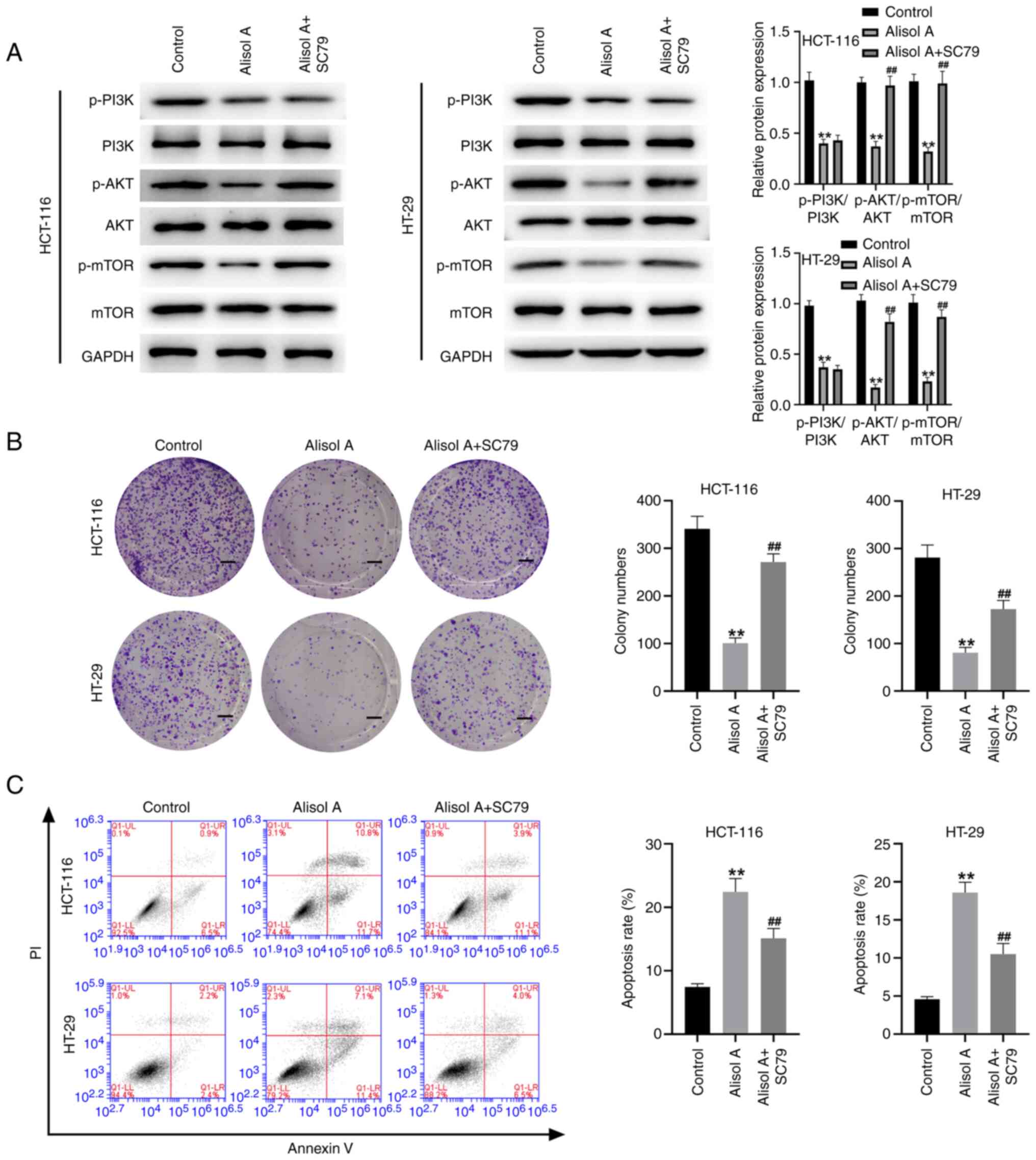|
1
|
Wrobel P and Ahmed S: Current status of
immunotherapy in metastatic colorectal cancer. Int J Colorectal
Dis. 34:13–25. 2019. View Article : Google Scholar : PubMed/NCBI
|
|
2
|
Siegel RL, Miller KD and Jemal A: Cancer
statistics, 2020. CA Cancer J Clin. 70:7–30. 2020. View Article : Google Scholar : PubMed/NCBI
|
|
3
|
Mármol I, Sánchez-de-Diego C, Pradilla
Dieste A, Cerrada E and Rodriguez Yoldi MJ: Colorectal carcinoma: A
general overview and future perspectives in colorectal cancer. Int
J Mol Sci. 18:1972017. View Article : Google Scholar
|
|
4
|
Boland PM, Yurgelun MB and Boland CR:
Recent progress in Lynch syndrome and other familial colorectal
cancer syndromes. CA Cancer J Clin. 68:217–231. 2018. View Article : Google Scholar : PubMed/NCBI
|
|
5
|
Das S, Ciombor KK, Haraldsdottir S and
Goldberg RM: Promising new agents for colorectal cancer. Curr Treat
Options Oncol. 19:292018. View Article : Google Scholar
|
|
6
|
Yu IS and Cheung WY: Metastatic colorectal
cancer in the era of personalized medicine: A more tailored
approach to systemic therapy. Can J Gastroenterol Hepatol.
2018:94507542018. View Article : Google Scholar
|
|
7
|
Zhai Z, Yu X, Yang B, Zhang Y, Zhang L, Li
X and Sun H: Colorectal cancer heterogeneity and targeted therapy:
Clinical implications, challenges and solutions for treatment
resistance. Semin Cell Dev Biol. 64:107–115. 2017. View Article : Google Scholar
|
|
8
|
Luo H, Vong CT, Chen H, Gao Y, Lyu P, Qiu
L, Zhao M, Liu Q, Cheng Z, Zou J, et al: Naturally occurring
anti-cancer compounds: Shining from Chinese herbal medicine. Chin
Med. 14:482019. View Article : Google Scholar : PubMed/NCBI
|
|
9
|
Yuan H, Ma Q, Ye L and Piao G: The
traditional medicine and modern medicine from natural products.
Molecules. 21:5592016. View Article : Google Scholar
|
|
10
|
Chen DQ, Feng YL, Tian T, Chen H, Yin L,
Zhao YY and Lin RC: Diuretic and anti-diuretic activities of
fractions of Alismatis rhizoma. J Ethnopharmacol. 157:114–118.
2014. View Article : Google Scholar
|
|
11
|
Li S, Wang L, Du Z, Jin S, Song C, Jia S,
Zhang Y and Jiang H: Identification of the lipid-lowering component
of triterpenes from Alismatis rhizoma based on the MRM-based
characteristic chemical profiles and support vector machine model.
Anal Bioanal Chem. 411:3257–3268. 2019. View Article : Google Scholar : PubMed/NCBI
|
|
12
|
Zhang LL, Xu W, Xu YL, Chen X, Huang M and
Lu JJ: Therapeutic potential of rhizoma Alismatis: A review on
ethnomedicinal application, phytochemistry, pharmacology, and
toxicology. Ann N Y Acad Sci. 1401:90–101. 2017. View Article : Google Scholar
|
|
13
|
Liu SS, Sheng WL, Li Y, Zhang SS, Zhu JJ,
Gao HM, Yan LH, Wang ZM, Gao L and Zhang M: Chemical constituents
from Alismatis rhizoma and their anti-inflammatory activities in
vitro and in vivo. Bioorg Chem. 92:1032262019. View Article : Google Scholar : PubMed/NCBI
|
|
14
|
Wang K, Zhang B, Song D, Xi J, Hao W, Yuan
J, Gao C, Cui Z and Cheng Z: Alisol A alleviates arterial plaque by
activating AMPK/SIRT1 signaling pathway in apoE-deficient mice.
Front Pharmacol. 11:5800732020. View Article : Google Scholar
|
|
15
|
Shi Y, Wang M, Wang P, Zhang T, Yu J, Shi
L, Li M, Wang H, Zhang Q and Zhao H: Alisol A is potentially
therapeutic in human breast cancer cells. Oncol Rep. 44:1266–1274.
2020. View Article : Google Scholar : PubMed/NCBI
|
|
16
|
Chen X, Zeng K, Xu M, Hu X, Liu X, Xu T,
He B, Pan Y, Sun H and Wang S: SP1-induced lncRNA-ZFAS1 contributes
to colorectal cancer progression via the miR-150-5p/VEGFA axis.
Cell Death Dis. 9:9822018. View Article : Google Scholar : PubMed/NCBI
|
|
17
|
Haggar FA and Boushey RP: Colorectal
cancer epidemiology: Incidence, mortality, survival, and risk
factors. Clin Colon Rectal Surg. 22:191–197. 2009. View Article : Google Scholar : PubMed/NCBI
|
|
18
|
Huang XM, Yang ZJ, Xie Q, Zhang ZK, Zhang
H and Ma JY: Natural products for treating colorectal cancer: A
mechanistic review. Biomed Pharmacother. 117:1091422019. View Article : Google Scholar : PubMed/NCBI
|
|
19
|
Sun X, Ng TTH, Sham KWY, Zhang L, Chan
MTV, Wu WKK and Cheng CHK: Bufalin, a traditional chinese medicine
compound, prevents tumor formation in two murine models of
colorectal cancer. Cancer Prev Res (Phila). 12:653–666. 2019.
View Article : Google Scholar : PubMed/NCBI
|
|
20
|
Han Q, Ma Y, Wang H, Dai Y, Chen C, Liu Y,
Jing L and Sun X: Resibufogenin suppresses colorectal cancer growth
and metastasis through RIP3-mediated necroptosis. J Transl Med.
16:2012018. View Article : Google Scholar : PubMed/NCBI
|
|
21
|
Chen Y, Wang XQ, Zhang Q, Zhu JY, Li Y,
Xie CF, Li XT, Wu JS, Geng SS, Zhong CY and Han HY:
(−)-Epigallocatechin-3-gallate inhibits colorectal cancer stem
cells by suppressing Wnt/β-catenin pathway. Nutrients. 9:5722017.
View Article : Google Scholar
|
|
22
|
Xiong Y, Xiong YJ, Liu DY and Shen RR:
Pancratistatin inhibits the growth of colorectal cancer cells by
inducing apoptosis, autophagy, and G2/M cell cycle arrest. Med Sci
Monit. 25:6015–6022. 2019. View Article : Google Scholar
|
|
23
|
Liu W, Li W, Liu H and Yu X: Xanthohumol
inhibits colorectal cancer cells via downregulation of hexokinases
II-mediated glycolysis. Int J Biol Sci. 15:2497–2508. 2019.
View Article : Google Scholar
|
|
24
|
Gamage CDB, Park SY, Yang Y, Zhou R, Taş
İ, Bae WK, Kim KK, Shim JH, Kim E, Yoon G and Kim H:
Deoxypodophyllotoxin exerts anti-cancer effects on colorectal
cancer cells through induction of apoptosis and suppression of
tumorigenesis. Int J Mol Sci. 20:26122019. View Article : Google Scholar
|
|
25
|
Xu W, Li X, Lin N, Zhang X, Huang X, Wu T,
Tai Y, Chen S, Wu CH, Huang M and Wu S: Pharmacokinetics and tissue
distribution of five major triterpenoids after oral administration
of rhizoma Alismatis extract to rats using ultra high-performance
liquid chromatography-tandem mass spectrometry. J Pharm Biomed
Anal. 146:314–323. 2017. View Article : Google Scholar
|
|
26
|
Ho C, Gao Y, Zheng D, Liu Y, Shan S, Fang
B, Zhao Y, Song D, Zhang Y and Li Q: Alisol A attenuates
high-fat-diet-induced obesity and metabolic disorders via the
AMPK/ACC/SREBP-1c pathway. J Cell Mol Med. 23:5108–5118. 2019.
View Article : Google Scholar : PubMed/NCBI
|
|
27
|
Lou C, Xu X, Chen Y and Zhao H: Alisol A
suppresses proliferation, migration, and invasion in human breast
cancer MDA-MB-231 cells. Molecules. 24:36512019. View Article : Google Scholar
|
|
28
|
Chen X and Liu H: Alisol A inhibited the
proliferation, migration, and invasion of nasopharyngeal carcinoma
cells by inhibiting the hippo signaling pathway. Yonsei Med J.
62:895–902. 2021. View Article : Google Scholar : PubMed/NCBI
|
|
29
|
Tang Z, Ji L, Han M, Xie J, Zhong F, Zhang
X, Su Q, Yang Z, Liu Z, Gao H and Jiang G: Pyroptosis is involved
in the inhibitory effect of FL118 on growth and metastasis in
colorectal cancer. Life Sci. 257:1180652020. View Article : Google Scholar
|
|
30
|
Narayanankutty A: PI3K/Akt/mTOR pathway as
a therapeutic target for colorectal cancer: A review of preclinical
and clinical evidence. Curr Drug Targets. 20:1217–1226. 2019.
View Article : Google Scholar : PubMed/NCBI
|
|
31
|
Duan S, Huang W, Liu X, Liu X, Chen N, Xu
Q, Hu Y, Song W and Zhou J: IMPDH2 promotes colorectal cancer
progression through activation of the PI3K/AKT/mTOR and
PI3K/AKT/FOXO1 signaling pathways. J Exp Clin Cancer Res.
37:3042018. View Article : Google Scholar : PubMed/NCBI
|
|
32
|
Liu W, Wang S, Sun Q, Yang Z, Liu M and
Tang H: DCLK1 promotes epithelial-mesenchymal transition via the
PI3K/Akt/NF-κB pathway in colorectal cancer. Int J Cancer.
142:2068–2079. 2018. View Article : Google Scholar : PubMed/NCBI
|
|
33
|
Liu H, Wang J, Tao Y, Li X, Qin J, Bai Z,
Chi B, Yan W and Chen X: Curcumol inhibits colorectal cancer
proliferation by targeting miR-21 and modulated PTEN/PI3K/Akt
pathways. Life Sci. 221:354–361. 2019. View Article : Google Scholar
|
|
34
|
Yang Z, Zhang C, Qi W, Cui Y and Xuan Y:
GLI1 promotes cancer stemness through intracellular signaling
pathway PI3K/Akt/NFκB in colorectal adenocarcinoma. Exp Cell Res.
373:145–154. 2018. View Article : Google Scholar : PubMed/NCBI
|
|
35
|
Wei R, Xiao Y, Song Y, Yuan H, Luo J and
Xu W: FAT4 regulates the EMT and autophagy in colorectal cancer
cells in part via the PI3K-AKT signaling axis. J Exp Clin Cancer
Res. 38:1122019. View Article : Google Scholar : PubMed/NCBI
|















